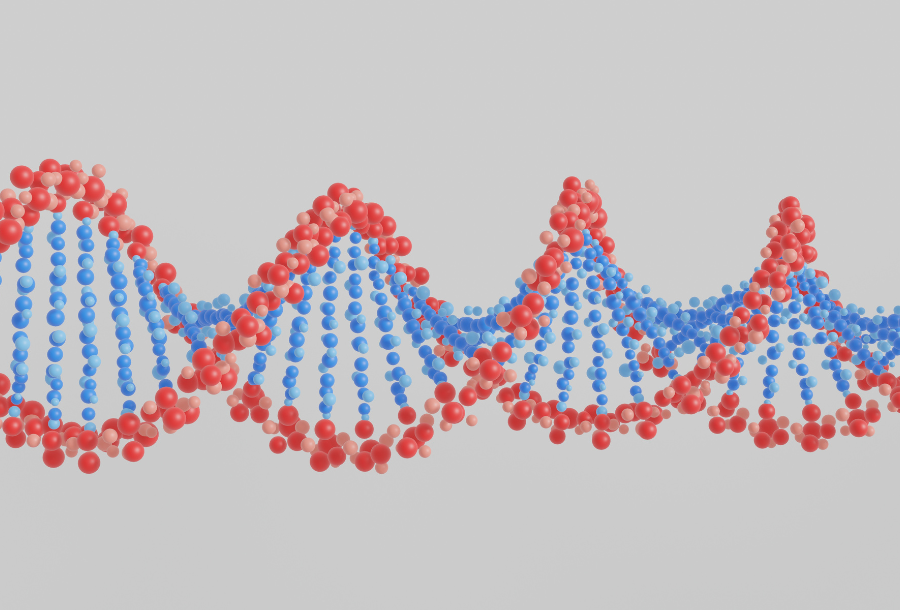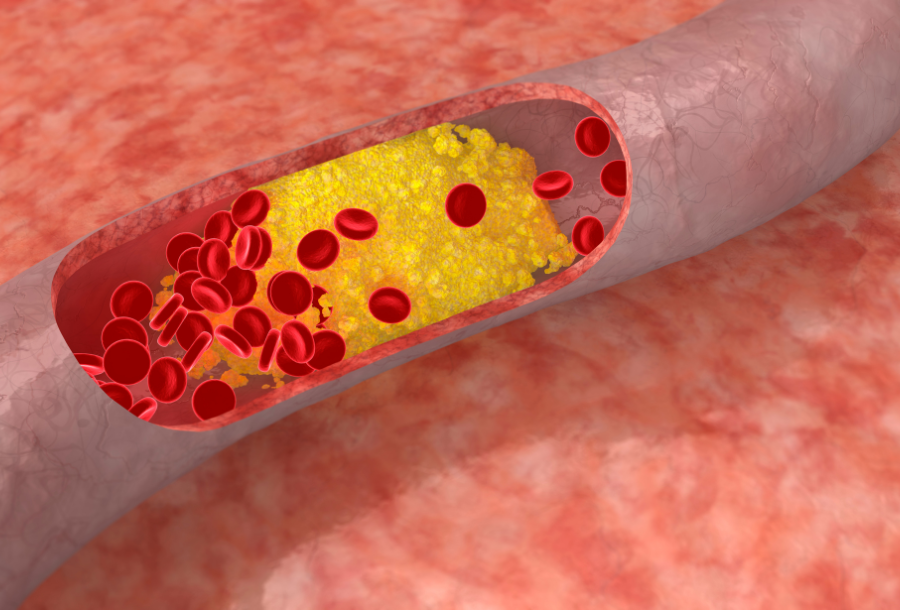
Shift from blame to taking full responsibility for your life
February 3, 2022
Discover the empowering difference between blame and responsibility, understand the psychological reasons for blame shifting, and learn actionable steps for adopting a responsibility-driven mindset in every facet of your life.
Key Takeaways:
- Blame is a passive and disempowering state, while taking responsibility equips you with the ability to respond.
- Emotional reactions offer an opportunity to understand and grow.
- Transitioning from blame to responsibility requires understanding, patience and actionable steps.
- Blame culture can be counterproductive, affecting both personal growth and overall health.
- Embracing responsibility can lead to better mental and metabolic health.
The inclination to blame is deeply embedded in human psychology. Historically, assigning blame was a way to identify threats and protect oneself. Today, blame can be an automatic defence mechanism, allowing us to:
- Preserve our self-esteem by shifting faults elsewhere.
- Avoid feelings of vulnerability or inadequacy.
- Guard ourselves from uncomfortable truths about our actions or decisions.
Blame shifting, at its core, is the act of pushing the responsibility of one's actions, decisions or mistakes onto someone else, or relentlessly beating oneself up to no end. Instead of accepting and acknowledging where one might have gone wrong, blame shifting seeks to divert attention away, creating an environment where personal growth is stunted and relationships may be strained.
According to research, blaming oneself is just as detrimental as blaming others, if not more so. Psychologists discovered that people who have a tendency to blame themselves are more likely to suffer from depression.
Understanding when we're falling into a blame culture is the first step towards taking responsibility. Some common signs of blame shifting include:
- Always seeing problems as external, never internal.
- Using language that removes personal agency, like "It's not my fault" or "They made me do it".
- Reluctance to reflect on personal actions or decisions.
- A persistent feeling of being a victim.
Taking full responsibility for your life
Embracing the philosophy to "take responsibility and don't blame others for your mistakes" is not just about correcting course when things go awry. It’s about recognising the inherent power and beauty of being the captain of your own ship.
The beauty of accountability
Taking responsibility for your own actions and circumstances is both liberating and empowering. When you're accountable, you not only acknowledge your mistakes but also claim the victories, successes and lessons learned along the way. It's a celebration of your autonomy, your capability to change, and your personal growth. By taking responsibility, you give yourself the opportunity to learn, evolve and shape your destiny.
Acknowledge and reflect
Accept that every action, or lack of action, leads to an outcome. Reflecting on your part in any situation gives clarity, and while it might be uncomfortable at times, it ultimately leads to growth. Remember to avoid being overly critical; instead, approach reflection with a learning mindset.
Educate yourself
Equip yourself with the knowledge and skills necessary to address challenges head-on. This might mean seeking expert advice, reading up on personal development, or simply taking a moment to understand the nuances of a situation.
Act decisively
Every step, every decision, every choice is yours to make. By taking responsibility, you're saying to the world—and to yourself—that you're in control. Whether it’s apologising when needed, making amends or setting new goals, it’s about being proactive and owning your journey.
Shift your perspective
When you take responsibility and don't blame others for your mistakes, you change the narrative. Rather than viewing challenges as burdens, they become opportunities to grow, evolve and strengthen your character. This shift in perspective transforms challenges into learning experiences, making every situation a stepping stone to becoming a better version of yourself.
The benefits of stopping blame shifting
The way we perceive and interpret our surroundings and experiences greatly influences our mental and physical wellbeing. A proactive, responsibility-driven mindset, as opposed to blame shifting, has been associated with a range of health benefits, including:
- Less prone to anxiety and depression. A responsibility-driven mindset allows you to control your emotional reactions, thereby reducing symptoms of anxiety and depression.
- More likely to set and achieve personal and professional goals. Taking charge of your life enhances self-confidence and motivation, which are key drivers in goal setting and attainment.
- Less susceptible to the detrimental effects of stress on metabolic health. By managing your responsibilities effectively, you can better regulate your stress levels, which in turn has a positive impact on metabolic health, including better glucose control.
While embracing a mindset of responsibility, various tools and resources play a pivotal role. Vively, a metabolic health app, can be a valuable companion. By helping users maintain glucose control, Vively offers an opportunity for people to take charge of a vital aspect of their health, underscoring the importance of taking responsibility for one's overall wellbeing.
Meet our team.
Subscribe to our newsletter & join a community of 50,000+
Get access to limited content drops, free invites to expert fireside chats, and exclusive offers.

Shift from blame to taking full responsibility for your life
Discover the empowering difference between blame and responsibility, understand the psychological reasons for blame shifting, and learn actionable steps for adopting a responsibility-driven mindset in every facet of your life.
Key Takeaways:
- Blame is a passive and disempowering state, while taking responsibility equips you with the ability to respond.
- Emotional reactions offer an opportunity to understand and grow.
- Transitioning from blame to responsibility requires understanding, patience and actionable steps.
- Blame culture can be counterproductive, affecting both personal growth and overall health.
- Embracing responsibility can lead to better mental and metabolic health.
The inclination to blame is deeply embedded in human psychology. Historically, assigning blame was a way to identify threats and protect oneself. Today, blame can be an automatic defence mechanism, allowing us to:
- Preserve our self-esteem by shifting faults elsewhere.
- Avoid feelings of vulnerability or inadequacy.
- Guard ourselves from uncomfortable truths about our actions or decisions.
Blame shifting, at its core, is the act of pushing the responsibility of one's actions, decisions or mistakes onto someone else, or relentlessly beating oneself up to no end. Instead of accepting and acknowledging where one might have gone wrong, blame shifting seeks to divert attention away, creating an environment where personal growth is stunted and relationships may be strained.
According to research, blaming oneself is just as detrimental as blaming others, if not more so. Psychologists discovered that people who have a tendency to blame themselves are more likely to suffer from depression.
Understanding when we're falling into a blame culture is the first step towards taking responsibility. Some common signs of blame shifting include:
- Always seeing problems as external, never internal.
- Using language that removes personal agency, like "It's not my fault" or "They made me do it".
- Reluctance to reflect on personal actions or decisions.
- A persistent feeling of being a victim.
Taking full responsibility for your life
Embracing the philosophy to "take responsibility and don't blame others for your mistakes" is not just about correcting course when things go awry. It’s about recognising the inherent power and beauty of being the captain of your own ship.
The beauty of accountability
Taking responsibility for your own actions and circumstances is both liberating and empowering. When you're accountable, you not only acknowledge your mistakes but also claim the victories, successes and lessons learned along the way. It's a celebration of your autonomy, your capability to change, and your personal growth. By taking responsibility, you give yourself the opportunity to learn, evolve and shape your destiny.
Acknowledge and reflect
Accept that every action, or lack of action, leads to an outcome. Reflecting on your part in any situation gives clarity, and while it might be uncomfortable at times, it ultimately leads to growth. Remember to avoid being overly critical; instead, approach reflection with a learning mindset.
Educate yourself
Equip yourself with the knowledge and skills necessary to address challenges head-on. This might mean seeking expert advice, reading up on personal development, or simply taking a moment to understand the nuances of a situation.
Act decisively
Every step, every decision, every choice is yours to make. By taking responsibility, you're saying to the world—and to yourself—that you're in control. Whether it’s apologising when needed, making amends or setting new goals, it’s about being proactive and owning your journey.
Shift your perspective
When you take responsibility and don't blame others for your mistakes, you change the narrative. Rather than viewing challenges as burdens, they become opportunities to grow, evolve and strengthen your character. This shift in perspective transforms challenges into learning experiences, making every situation a stepping stone to becoming a better version of yourself.
The benefits of stopping blame shifting
The way we perceive and interpret our surroundings and experiences greatly influences our mental and physical wellbeing. A proactive, responsibility-driven mindset, as opposed to blame shifting, has been associated with a range of health benefits, including:
- Less prone to anxiety and depression. A responsibility-driven mindset allows you to control your emotional reactions, thereby reducing symptoms of anxiety and depression.
- More likely to set and achieve personal and professional goals. Taking charge of your life enhances self-confidence and motivation, which are key drivers in goal setting and attainment.
- Less susceptible to the detrimental effects of stress on metabolic health. By managing your responsibilities effectively, you can better regulate your stress levels, which in turn has a positive impact on metabolic health, including better glucose control.
While embracing a mindset of responsibility, various tools and resources play a pivotal role. Vively, a metabolic health app, can be a valuable companion. By helping users maintain glucose control, Vively offers an opportunity for people to take charge of a vital aspect of their health, underscoring the importance of taking responsibility for one's overall wellbeing.
Get irrefutable data about your diet and lifestyle by using your own glucose data with Vively’s CGM Program. We’re currently offering a 20% discount for our annual plan. Sign up here.
Next articles

Understanding the causes of insulin resistance
Unravel the mystery of insulin resistance, its causes and implications for your health. Explore evidence-based strategies to prevent and manage this condition and optimise your metabolic health.



 Share
Share Tweet
Tweet Share
Share














